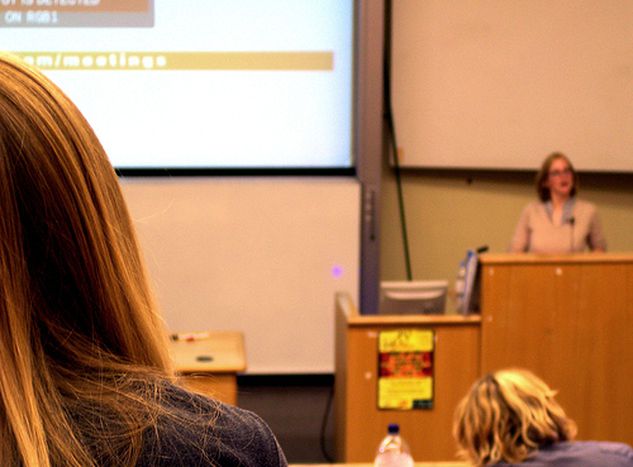
French and European Universities : A Middle-Age History
Published on
Place de la Sorbonne in the sixth arrondissement of Paris, a week day : small groups of students part. French is spoken here and there, of course, however tinted with slavic, hispanic or english accents. And this is occuring here for centuries… Established in 1253, the Sorbonne University is one of the oldest in Europe. The oldest is that of Bologna, in Italy, established in 1088.
Followed Salamanca (Spain) in 1218 and Lisbon (Portugal) in 1300. Students enrolled in these learning institutions were usually from fairly privileged social classes and it was then quite usual to enhance one’s knowledge through experiences abroad. It was the case with the famous Erasmus, a dutch Theologian who studied in France, England and Italy. Latin was then the most commonly used language of communication.
French Singularity : the Grandes Ecoles
This melting pot thus allowed for the rising of a European community of Knowledge. The student could compare teaching methods through his different stays abraod. As early as the 15th century, there are two kinds of educational institutions : laïc institutions providing technical education on one hand, and on the other, Universities with general studies programmes. “The gap between general culture and technical teaching was getting bigger” analyses Jacques Le Goff in ‘The Europe of Univerties”, explaining the dichotomy existing in France today. Unlike other european countries, the French University never seems ready to undergo its revolution. Knowledge is transmitted by a master, often related to the Clergy, facing the students. Changes in the teaching methods usually occur within the Grandes Ecoles, less conservative than the University and more independent from the Church and later from the State : the Ponts et Chaussées opens in 1747, the Ecoles des Mines in 1783 and in 1871, the Ecole Libre des Sciences Politiques (the actual Political Sciences Institute, Sciences Po). These three Higher Education Institutions still remain very prestigious nowadays, forming engineers for the first two mentined and journalists or politicians for the third.
Cambridge partner of NOKIA Another French exception is the absence of bridges between Universities and private business companies while exchanges between the economic world and scientific researches are normal in Scandinavia, Germany or England. The most recent example dates from february 2008. The Nokia telephone company revealed its latest product : a transparent, flexible telephone functioning with solar energy. It was conceived in association with the Nanosciences Department of the Cambridge University (England). When will a project of such scale take place in a French University? This initiative sets Cambridge as the first European University in the 2008 Shanghai ranking, the fourth in the world. The first French University ranks only 42nd. Marie Scholer, a 22 years old student in Geophysics, spent 10 months at the Oslow University in Norway. She witnessed the ties between Higher Education and the business world. “ I was able to work on very expensive softwares that belonged to major oil industry companies” she said to the L’Etudiant website. “ In France, students do not have access to these kinds of tools and receive a more theoretical education.”
Strasbourg, Pioneer City
Recently however, a few initiatives show the way for a little more autonomy in Rabelais’s homeland. In january 2009, Strasbourg will reach the size of universities like Cambridge, Oxford or Milano with the fusion of its three Universities gathering 42 000 students- researchers and 700 researchers from the CNRS and the INSERM. The Pecresse Law, named after the actual Minister for Higher Education and voted in August 2007, will also grant greater autonomy of management and recruitment to the French Universities. As early as 2002, Europe gave an impulse with the LMD reform (Licence, Master, Doctorate) allowing for a harmonisation of the Higher Education system throughout Europe. Combined with the increasing mobility of sutdents through the ERASMUS programme created in 1987, the Latin Quarter might very well recover its title of European Center of Knowledge.
Further insights: * L'Europe des Universités, Marie-Laure Le Foulon and Jean-Maurice de Montrémy (Edition Broché) * L'Université est aussi un marché, Thierry Madiès, professor at Fribourg University ( www.telos-eu.com) * Réformer l'Université ? Encore un peu de volontarisme !, Olivier Galland, sociologist, Research Director at the CNRS * Les universités : entre culture générale et professionnalisation ? Radio show : Du grain à moudre – France Culture Radio
Picture : Iwouldstay/FlickR
Johara BOUKABOUS
Translation : Frédérique Destribats



